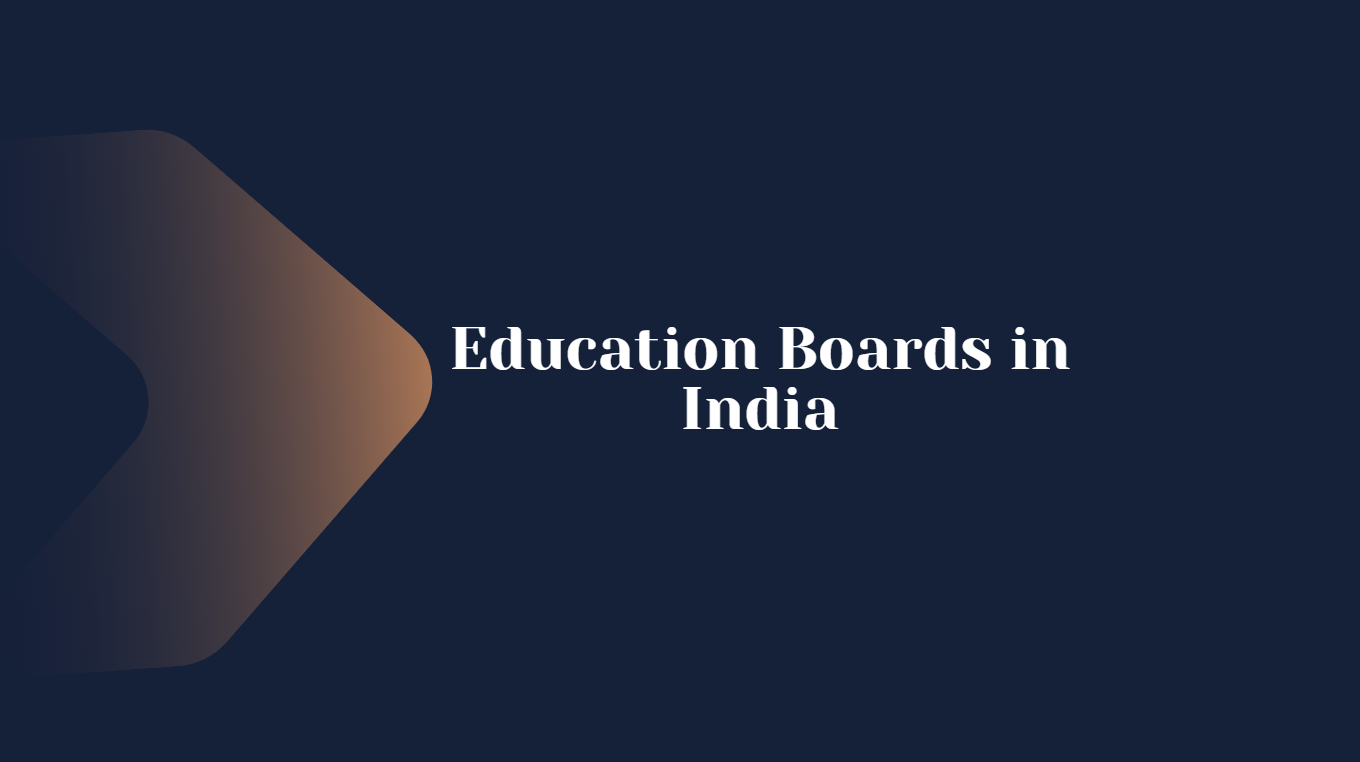- Likes
- Followers
- Followers
- Followers
- Subscribers
- Followers
- Members
- Followers
- Members
- Subscribers
- Subscribers
- Posts
- Comments
- Members
- Subscribe
What are Different Education Boards in India?

In India, various education boards govern the school education system, each catering to different curricula and educational approaches. After qualifying from these education boards, students can opt their higher education such as Graduation from Central and State Universities, IITs, IIITs, NITs for B.E. and B.Tech., and then after Post Graduation management degrees from IIMs. The following are some of the prominent education boards in India.
1. Central Board of Secondary Education (CBSE)
CBSE is one of the most widely recognized national boards in India. It follows a centralized curriculum designed to ensure uniformity in education across the country. CBSE conducts board examinations for classes 10 and 12, known as the Secondary School Examination (SSE) and the Higher Secondary Certificate (HSC) examinations, respectively.
2. Indian Certificate of Secondary Education (ICSE)
ICSE is a private, non-governmental board. The ICSE curriculum is considered more comprehensive and application-oriented compared to some other boards. ICSE conducts examinations for the 10th standard (Indian Certificate of Secondary Education) and 12th standard (Indian School Certificate).
3. State Boards
Each state in India has its own state board of education UP state board and MP state board. State boards design their curricula, which may vary from state to state. State boards conduct board exams at the end of class 10 and 12, certifying students who pass as matriculates or intermediate.
4. National Institute of Open Schooling (NIOS)
NIOS is an autonomous institution under the Ministry of Human Resource Development (MHRD). It offers open and distance learning programs at the secondary and senior secondary levels. NIOS conducts exams for secondary and senior secondary courses.
Posts You May Like
5. International Baccalaureate (IB)
The International Baccalaureate board or IB board offers an international curriculum. It focuses on a holistic educational approach, including academic, personal, and social development. Students take the IB diploma examinations at the end of the program.
6. Cambridge Assessment International Education (CAIE)
CAIE is part of the University of Cambridge, offering international qualifications. It provides a global curriculum and assessments. Students take the Cambridge IGCSE, AS, and A-level examinations.
7. Council for the Indian School Certificate Examinations (CISCE)
CISCE is a private board that conducts the ICSE and ISC examinations. The board aims to provide a balanced education, combining academics with extracurricular activities. It conducts the Indian Certificate of Secondary Education (ICSE) and Indian School Certificate (ISC) examinations.
8. State Open Schools
Some states have established open schools to provide flexible learning opportunities. State open schools such as Delhi state open school, UP state open school, etc. offer distance education programs. They conduct exams for classes 10 and 12, similar to regular boards.
Understanding the characteristics and differences of these education boards helps parents and students choose the educational system that aligns with their preferences, career goals, and learning styles. Each board has its strengths and unique features, contributing to the diverse educational landscape in India.
Image credit- Canva


Comments are closed.